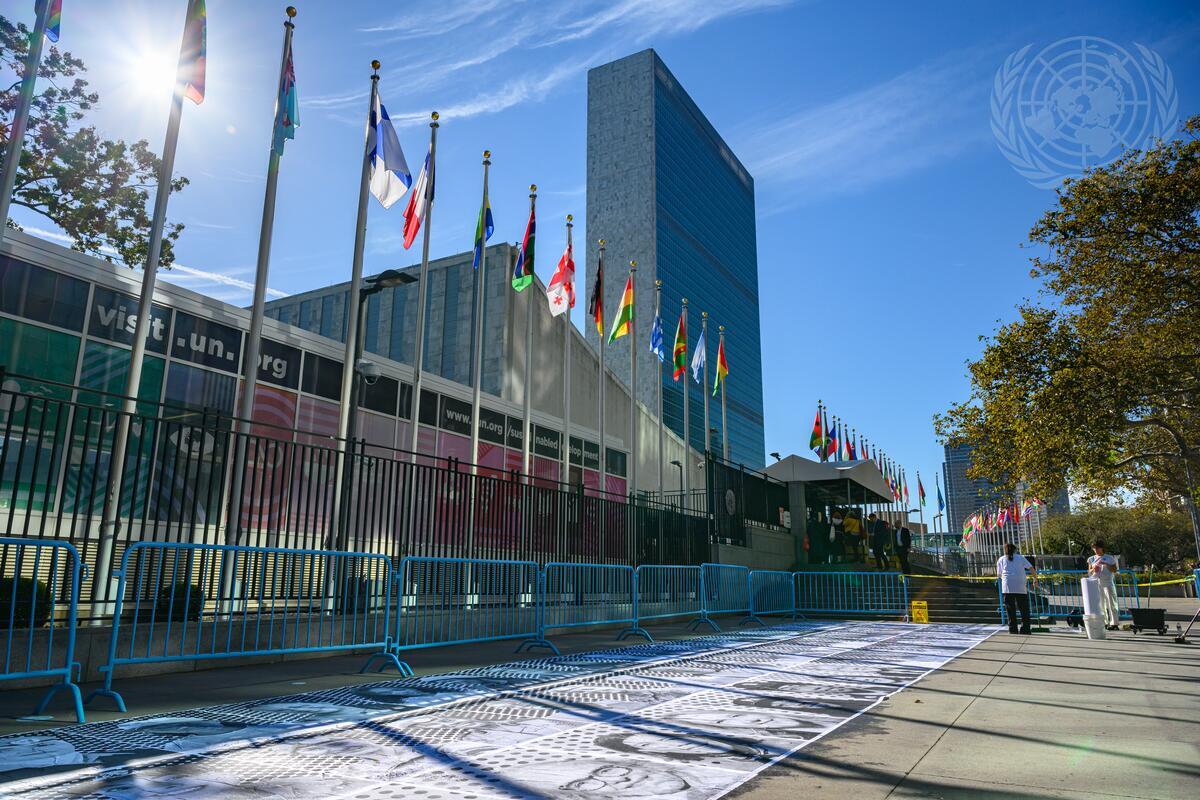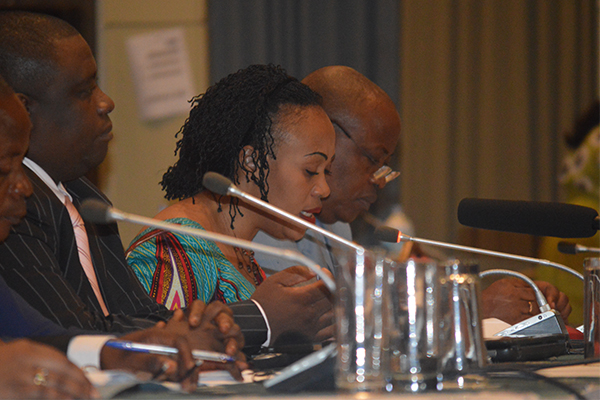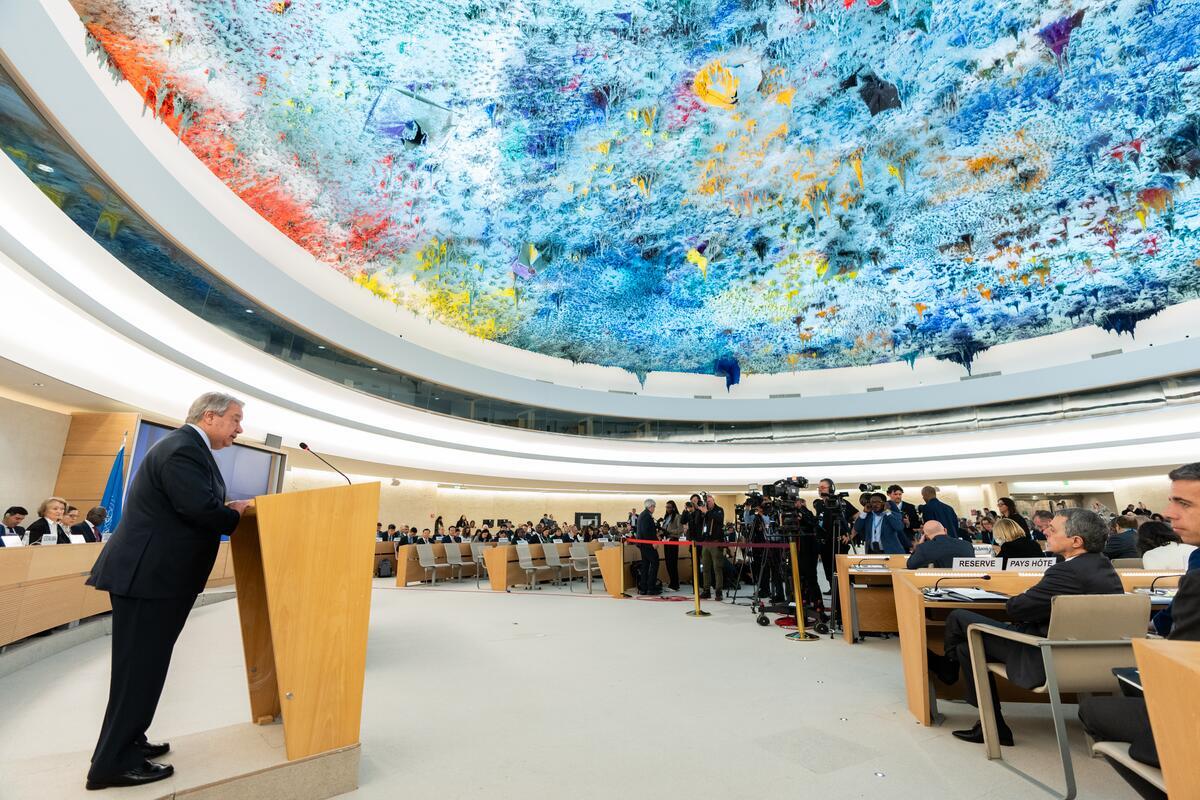Rwanda, Niger and Congo were respectively submitting their combined 11th, 12th and 13th (Rwanda), 14th (Niger) and initial (Congo) reports to the African Commission.
Rwanda: great progress made though major concerns remain
The first country to be examined, Rwanda, put much emphasis on progress made on gender equality and women’s rights when presenting its latest human rights developments to the African Commission. According to the report submitted and presentation made, a wide range of legal and policy measures have been taken by the country in the recent years such as, inter alia: better inclusion of women in police forces; establishment of a gender-based violence and child focal person to facilitate access to justice to women victims of such violence; affirmative action ensuring a minimum of 30% female representation in decision making organs; the establishment of a National Women’s Council, etc. It is indeed worth reminding that Rwanda ranks top in the world in terms of number of women parliamentarians.
Yet these encouraging performances on women’s rights were somehow overshadowed by otherwise growing human rights concerns as highlighted by the African Commission’s questions to the delegation as well as statements made by NGOs.
For example, the Commission regretted that in 2016 (and contrarily to what the country’s report stated) Rwanda withdrew its 2013 declaration under article 34(6) of the Protocol establishing the African Court on Human and Peoples’ Rights and most importantly, allowing direct access of NGOs individuals to the said Court. This apparently politically motivated withdrawal made to prevent some Rwandan citizens to file complaints against their Government was called a ‘major setback for human rights’ by the Commission. The Commission also expressed concern over allegations regarding ‘rehabilitation centers’ where deprived population are said to be deported, detained and ill treated by officials according to some NGOs. The delegation did not bring any response to any of the two aforementioned issues.
It did though respond to comments made on the suspension of BBC in Kinyarwanda, a suspension declared illegal by the country’s media commission itself but which the country explained by claiming the TV channel was broadcasting revisionist stances. It also ensured a worried African Commission that long-term refugees living on Rwandan soil will be offered to choose between getting citizenship or receive substantial and effective repatriation support when possible and according to their wishes.
The case of Diane Rwigara, a political opponent to president Kagame arbitrarily detained since last Summer was also raised by several NGOs. While attempting to run for presidency, Diane Rwigara, the only female candidate, was indeed subject to a gender-based smear campaign led by the media and political parties. She was ultimately arrested in August on tax evasion allegations, her whereabouts being kept secret from her relatives for several days. Now facing a lengthy jail sentence, she has been refused bail by Rwandan authorities which casts a shadow on the country’s women’s rights record.
To concerns expressed by the Commission and NGOs on the overuse of defamation law to stifle freedom of expression, Rwanda replied by saying its Penal Code’s provisions on defamation are currently being examined by its parliamentarians. Yet to allegations made by Human Rights Watch of arbitrary detentions and other human rights violations committed against political opponents, Rwanda replied by tarnishing the NGO’s work and questioning its legitimacy to express views on its human rights situation. Though Rwanda denied using nor tolerating under-torture confessions, it regrettably said nothing on allegations of arbitrary detentions and threats made by its security forces.
Niger: protection of human rights and human rights defenders still insufficient
Niger was the second country to be reviewed by the Commission and was commended for being up to date report submission wise. This was indeed the only point the commission got to congratulate the country about as the rest of the examination turned out to highlight more concerns than progress made.
Intense foreign (especially US) military presence in Niger (vividly encouraged by the authorities themselves) raises a wide range of human rights and legal issues underlined the Commission. ‘What measures are taken to ensure that these forces respect human rights standards?’. ‘What is is being done to ensure that populations whose rights have already been violated by these forces do have access to remedies?’. ‘Has Niger launched investigations on complaints already filed about murders and other human rights violations already committed by these forces?’… Those were among the numerous questions asked by the Commission to Niger’s representatives questions which did not get satisfactory, if any, responses.
Even before dreadful images of migrants being sold like cattle in Libya were spread across the globe, the African Commission was already raising concerns over similar traffick committed in the Agadez region in Niger, also known as the ‘smuggling capital of Africa’ or the ‘smuggling hub’. The Commission regretted that the country’s report, while mentioning a law on the issue, did not detail the actual provisions of the law and what concrete actions it would allow.
The African Commission also inquired about the latest developments on the elaboration of a national law protecting human rights defenders. This was a recommendation from Niger’s last examination by the Commission and this was touched upon in the country’s report without enough information for the Commission to really get where the country was at in that process. The country replied by saying that it was still committed to adopt such a law and that discussions with civil society organisations were being held in this regard.
Other major topic of serious concerns in the country include the rights of people and communities being violated by extractive industries and/or in the context of mining projects as well as the constantly delayed abolition of death penalty or the non ratification of the Maputo Protocol on the rights of women in Africa.
Congo: an appaling human rights record and too many unanswered questions
The last examination in the Commission’s agenda, Congo’s was also the most excruciating one. The Commission could not even count on the country’s report to be made aware on any significant human rights development as the report failed to provide any meaningful information, was already outdated (only covering a period up to 2015), and did not even respect the reporting requirements as the Commission publicly noted.
Given the country’s worsening situation and the report’s lack of information, questions by the Commission were many, ranging from ‘why hasn’t the 2016 law on freedom of association been enforced yet?’ to ‘what is being done to hold accountable those security forces who bloodily repress protests?’.
The currently being examined law on human rights defenders raised more concerns than hopes as it turns out to be more restrictive than protective for defenders. Many of its provisions are actually in total contradiction with the UN Declaration on human rights defenders such as the requirement to be over 18 and hold a state-registered degree to be considered as a human rights defender, or the obligation made to NGOs to disclose the names of their members to the State. The Commission urged Congo to revise its law without delay, a demand the delegation dodged in its responses by claiming its Government could not do anything about laws examined by the parliament because of the separation of powers. Not even make them respect the country’s international human rights commitments it seems.
Gross human rights violations were mentioned throughout the examination such as mass graves in Kivu, ‘punishment centers’ in Goma where victims are being held incommunicado, summary executions such as that of Father Vincent Machozi and human rights defenders Marcel Tengeneza, Alphonse Luanda Kalyamba or Tsongo Sikuliwako Alex.
Same as for Niger, the impact of extractive industries on human rights of people and communities was a topic of major concern for the African Commission. They urged Congo to put an end to the dilapidation of its natural resources by foreign contractors who let none of the transactions benefit to the country, let alone to the communities. The delegation refused to take a stand on this simply ensuring that all mining contracts signed in the country are public.
At the end of Congo’s examination, the African Commission could only point out that the country did not answer most of its questions and expressed hopes that it will do so in writing before Commission issues its concluding observations on the country review.




